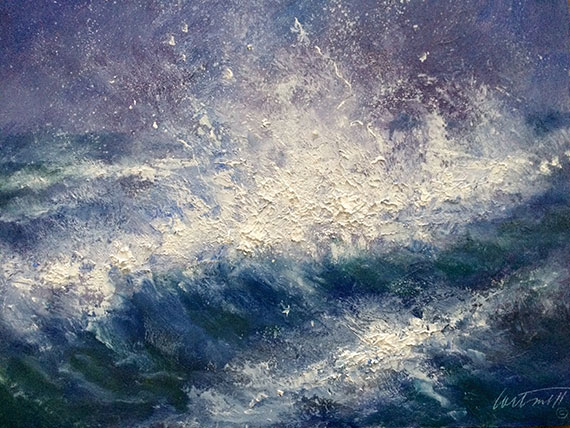(Part I; Part II on August 21)
Henry Wadsworth Longfellow penned the famous line, Into each life some rain must fall, as part of a short three-stanza poem, The Rainy Day. Standing alone, the phrase rings of truism, a tad vacuous, hinting at the scantest of truths. Indeed rain does fall. Into each life. Don your raincoat or fetch your umbrella. If you wait a day or two, though, the weather will change. Or, as they say in my part of the country, Just wait ten minutes.
But, suffering as rain? When it comes to suffering and rain, aren’t we talking heavy winter storms of sleet and ice stretching into days and months. Someone once told me that Sewanee, Tennessee, where I attended seminary, was so pea-soup foggy one January a few years back that the person could not see her neighbor’s house. Not once, the entire month.
Jesus suffered and died, an event we call the Passion. Paul reads a cosmic exchange into the Passion, that Jesus suffered so we could avoid divine judgment that would certainly end in destruction. Isaiah similarly anticipated messianic suffering as God’s punishment long overdue for the dark deeds of humanity. Perhaps, although many contemporary theologians bristle at the notion of such an exchange: “substitutionary atonement,” that Jesus had to atone for us because we are unable to do so for ourselves.
If no exchange, then, what do we make of Jesus’ suffering?
Longfellow’s singular line, Into each life some rain must fall, was not written singularly. The poem is neither hippy-dippy nor lighthearted, but desperate and dark.
My life is cold, dark, and dreary;
It rains and the wind is never weary;
…
We’re not talking mere drizzle, here, as in worry yourself not, for the winds will shift and the sun will soon shine. His words capture the despondency of a long and slow depression – clinical or otherwise – real suffering. The grief of that dad who accidentally left his twins in the hot summer car last week in New York – the twins died – so how will this man cope? The husband who lost his wife of sixty years. The newly diagnosed Alzheimer’s patient who is still sufficiently cognizant to see the decade as one of personal and steep decline. Suffering, like each of us has or will suffer at some point in our lives, and if not us, those who will suffer in our wakes.
Suffering is psychological, often physical, and deeply spiritual. And, it is real.
We’ve all heard the voice of some evangelist or preacher who claimed Jesus’ suffering was the worst ever experienced. Think Mel Gibson, here, with his portrayal of the Passion as violent, bloody and wretched. Nobody has suffered a worse death, but of course we know this cannot be true. Just ask some of those who survived the Nazi concentration camps. Besides, had Jesus actually born their suffering, why did they suffer?
I have to wonder, could it be that Paul over-interpreted or over-thought the meaning of Jesus’ death on the cross? Do we, as Christians, need to explain the Passion as though it were a scientific phenomenon subject to precise definition? What if Jesus’ suffering is subject only to lived experience, yours and mine. I experience Jesus’ suffering through my own, and the Son of God and Son of Man experienced my suffering through his own.
I have been crucified with Christ … and I have. Many times. And likely will again. And each time one of the little ones suffer, it is as though Jesus rises up and dies again.
For Longfellow, the question was not about a little drizzle, but an entire season of darkness, the bidden sun shines brightly behind the darkness. We are not saved from the darkness, but the darkness can tell but one chapter in a longer story.
Just as Jesus’ death told only one chapter of the story. And that chapter was completely overshadowed several days’ hence …
(to be continued)

